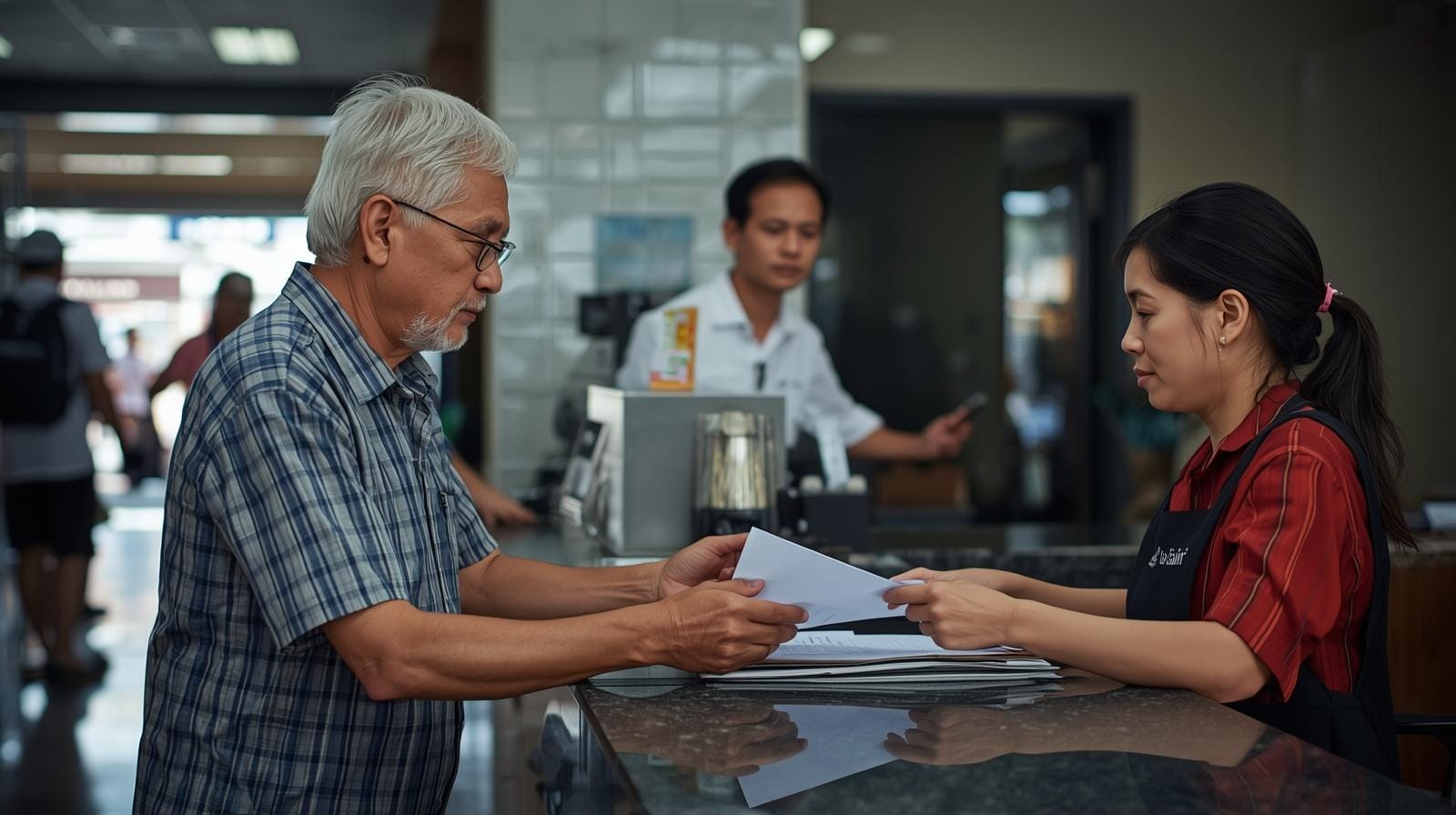The System in Flux
Immigration policy in Thailand has never been a static rulebook; it has always been an instrument of economic and political design. In 2025, that design is once again shifting. The official narrative highlights openness: digital transformation, new pathways for global talent, and streamlined processes for retirees and investors. But beneath the promotional gloss, a more serious recalibration is underway — one that prizes enforcement, compliance, and selectivity.
Foreigners who once relied on loopholes, informal arrangements, or lightly checked financial documents are encountering a less forgiving environment. Visa pathways that once functioned as soft entry points are being hardened into compliance filters. The objective is not simply to welcome more foreigners, but to ensure the ones admitted contribute to the economy in measurable ways.

Ready to take your next step in Thailand?
Connect with vetted local experts for visas, company setup, or property — no spam, no hidden fees.
Many readers have already found trusted local partners through our network.
The New Pillars of Entry
Long-Term Resident (LTR) Visa
Marketed as the flagship option for high-net-worth individuals and skilled professionals, the LTR has evolved from a symbolic program into a genuine policy tool. Processing is faster, documentation is standardized, and digital filing has reduced the bottlenecks that plagued earlier applicants. What has also changed is the threshold: the government is no longer overlooking weak financial proof. The LTR is now positioned less as a perk for well-connected applicants and more as a structured pathway for those who can prove both means and relevance to the Thai economy.
Digital Talent Visa (DTV)
Once dismissed as an experiment, the DTV has become an important lever for attracting a class of professionals that doesn’t fit the corporate mold. The 2025 revisions opened the door to more “soft skill” categories, particularly in education and digital media. But there is a catch: reporting obligations have increased. Holders are now expected to file quarterly compliance updates, creating a paper trail that can easily disqualify those without genuine, sustainable activity in Thailand.
Retirement Visa
For decades, the retirement visa was perceived as the easiest route to stability in Thailand. That perception no longer matches reality. The rules have not changed on paper, but banks are enforcing them with new rigor. Proof-of-funds requirements are now monitored rather than checked once at application. Applicants relying on last-minute deposits or financial padding are finding approvals delayed or denied. For retirees with solid finances, the visa remains viable; for those who treated it casually, the environment is less forgiving.
Non-B Work Visa
The most familiar route for foreign employees, the Non-B has become the front line of enforcement. Applications tied to companies without real operations are increasingly rejected. Immigration and labor offices are cooperating more actively, with social security contributions cross-checked against visa applications. In practice, this means only businesses with verifiable payrolls and tax compliance records can expect smooth approvals. For the first time in years, the state appears willing to close the gap between paper companies and actual employers.

Enforcement as Strategy
What has changed most visibly in 2025 is not the visa options themselves, but the machinery that governs them. Immigration authorities now operate with an expanded digital backbone, linking tax, labor, and social security databases. Cross-referencing is no longer an occasional exercise; it is becoming a default process.
This shift reflects a larger political strategy. Thailand is not simply competing for tourists or one-off investors — it is positioning itself as a regional hub for long-term capital, talent, and retirees who can prove stability. Selectivity is the keyword. In effect, immigration is being weaponized as a filter for economic quality control.
The implications are clear: those who cannot demonstrate sustained compliance — whether through bank balances, tax filings, or legitimate business activity — are at risk of exclusion.

Ready to take your next step in Thailand?
Connect with vetted local experts for visas, company setup, or property — no spam, no hidden fees.
Many readers have already found trusted local partners through our network.
Winners and Losers
Winners:
- Investors who meet capital thresholds without shortcuts.
- Multinationals and BOI-approved companies with clear compliance records.
- Retirees with demonstrable financial stability, not cosmetic account movements.
Losers:
- Freelancers relying on tourist visa extensions.
- Thinly capitalized incorporations attempting to leverage Non-B pathways.
- Applicants expecting “flexibility” at the immigration desk that no longer exists.
This division reflects the government’s underlying logic: Thailand wants fewer but higher-value foreigners. The “volume game” that characterized past decades has given way to a “value game.”

Signals Worth Watching
Several trends point to further shifts ahead:
- ASEAN Harmonization
Talks are underway on limited regional immigration harmonization. If advanced, this could mean new mobility privileges for professionals already registered in other ASEAN countries — though implementation would likely be uneven. - Digital First, Surveillance Next
The government is marketing its immigration platforms as streamlined and digital-first. Applicants appreciate the convenience, but the trade-off is obvious: a far more visible digital footprint. Every filing, update, and transaction is logged, cross-checked, and available for audit. - Policy Volatility
Thailand’s political cycles remain unpredictable. A cabinet shuffle or shift in economic priorities could redirect immigration priorities within months. This volatility is a risk factor for anyone considering a long-term plan here.

Ready to take your next step in Thailand?
Connect with vetted local experts for visas, company setup, or property — no spam, no hidden fees.
Many readers have already found trusted local partners through our network.
The Ground Truth
Thailand’s visa landscape in 2025 is no longer about working around the system. It is about working within it — and proving, at every stage, that you belong in it. Compliance has become the price of admission.
Foreigners looking for permanence need to think less like short-term visitors and more like stakeholders. Immigration is no longer just a doorway; it is an ongoing test of economic relevance. The message is blunt but consistent: if you bring demonstrable value, Thailand will open its doors. If you don’t, the door is narrowing fast.

Ready to take your next step in Thailand?
The Thailand Advisor connects you with vetted local experts — trusted professionals who understand Thailand’s systems, pricing, and process.
Whether your goal is visa approval, company setup, or property investment, we’ll guide you with clarity — no spam, no hidden fees.
Answer a few quick questions to match with the right consultant for your goals.
Many readers have already found trusted local partners through our network.










